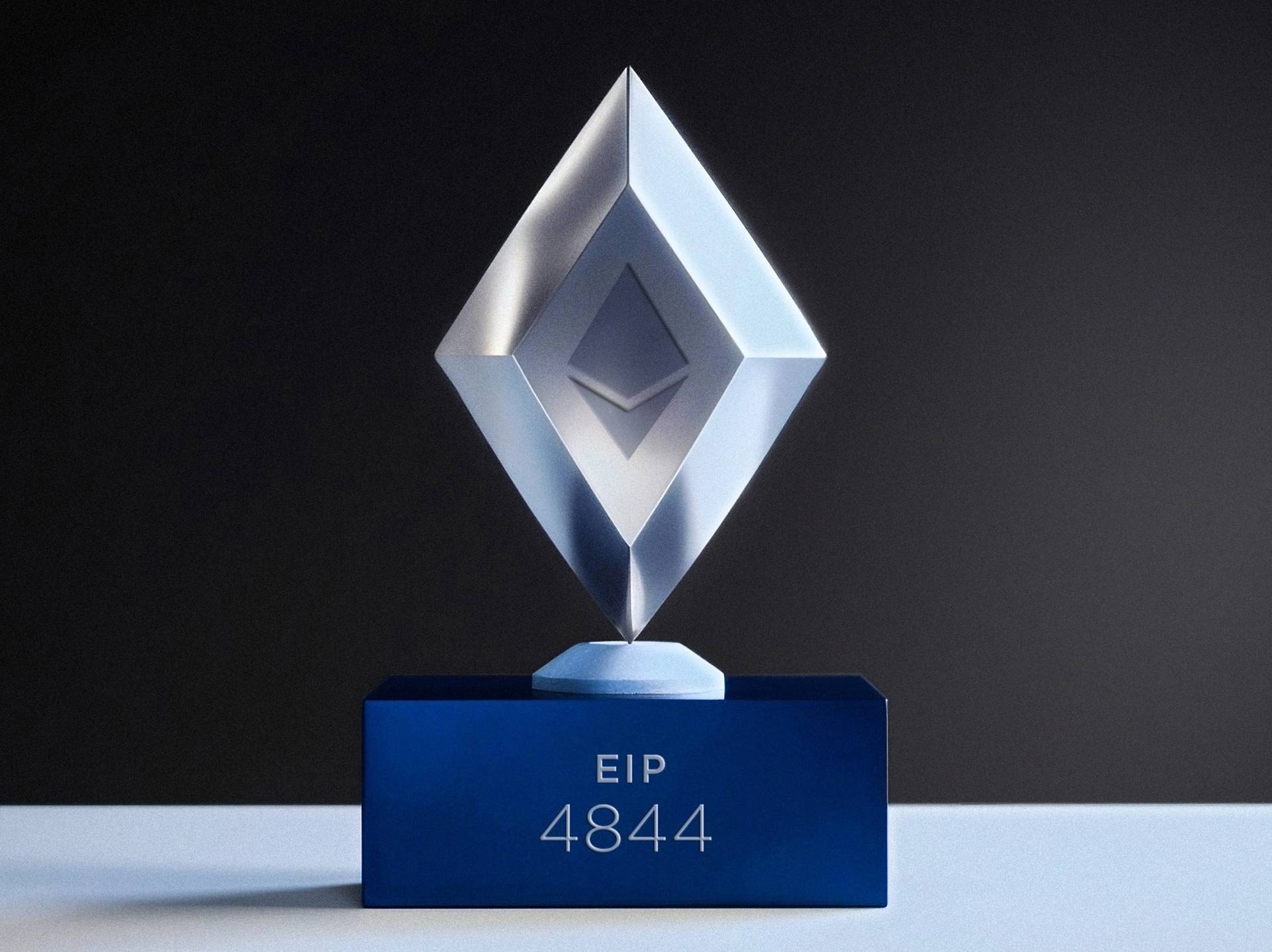위키 구독하기
Share wiki
Bookmark
EIP-4844
0%
EIP-4844
EIP-4844(샤드 블롭 트랜잭션)는 프로토-댕크샤딩이라고도 하며, 전체 댕크샤딩 사양을 구성하는 대부분의 로직과 “스캐폴딩”(예: 트랜잭션 형식, 검증 규칙)을 구현하기 위한 이더리움 개선 제안(EIP)이지만, 아직 실제로 샤딩을 구현하지는 않습니다. 프로토-댕크샤딩 구현에서는 모든 검증자와 사용자가 여전히 전체 데이터의 가용성을 직접 검증해야 합니다.[1]
개요
3월 14일, 덴쿤 업그레이드가 이더리움 메인넷에서 시작되었습니다. 덴쿤에는 이더리움 실행 로직과 관련된 6개의 EIP가 포함되어 있습니다. 이 중 가장 중요한 것은 EIP-4844로, 트랜잭션 수수료를 줄여줄 레이어 2 전용의 특별한 리소스를 도입합니다. 블롭 공간은 The Merge 이후 가장 큰 변화입니다.[3][4]
EIP-4844는 짧은 기간 동안 비콘 노드에 유지될 데이터를 “블롭”으로 받아들이는 새로운 종류의 트랜잭션 유형을 이더리움에 도입합니다. 이러한 변경 사항은 이더리움의 확장 로드맵과 호환되며, 블롭은 디스크 사용량을 관리하기에 충분히 작습니다.
EIP-4844는 새로운 “블롭 운반” 트랜잭션 유형을 도입하여 이더리움을 확장하는 데 도움이 됩니다. 롤업 시퀀서(및 잠재적으로 다른 사람)는 이 새로운 트랜잭션 유형을 사용하여 현재 가능한 것보다 저렴하게 데이터를 이더리움 메인넷에 게시합니다. 또한 EIP-4844는 블록당 포함되는 블롭의 크기와 수를 제한하여 이더리움 노드의 계산 및 스토리지 요구 사항이 크게 증가하지 않도록 함으로써 탈중앙화를 유지합니다. 향후 업그레이드에서는 이러한 제한을 줄여 이더리움을 더욱 확장할 수 있습니다.
블롭 데이터 자체는 이더리움 실행 레이어(EL, 즉 EVM)에서 실제로 액세스할 수 없기 때문에 유사한 크기의 일반 이더리움 콜데이터보다 저렴할 수 있습니다. 오히려 블롭 데이터에 대한 참조만 EL에서 액세스할 수 있으며, 블롭 내의 데이터 자체는 이더리움 합의 레이어(CL, 즉 비콘 노드)에서만 다운로드 및 저장되며 제한된 기간 동안만 저장됩니다(일반적으로 ~18일).
블롭 운반 트랜잭션에는 실제로 블롭 데이터가 포함되어 있지 않습니다. 각 블롭에 고유하고 각 블롭을 블롭 운반 트랜잭션에 연결하는 데 사용할 수 있는 지문인 blob_versioned_hashes 필드에 대한 참조만 포함되어 있습니다. 각 블롭에 대한 이 참조만 주어진 블록 내에 존재하기 때문에 각 블롭에 포함된 L2 트랜잭션은 이더리움 실행 레이어(즉, EVM)에서 실행되지 않으며 실행될 수 없습니다. 이것이 주어진 크기(블롭당 128KB)의 블롭 데이터를 롤업 시퀀서가 유사한 크기의 일반 이더리움 콜데이터보다 저렴하게 이더리움에 게시할 수 있는 이유입니다. 블롭 데이터는 레이어 1(이 경우 이더리움)에서 다시 실행할 필요가 없습니다. 각 블롭을 구성하는 실제 데이터는 이더리움 합의 레이어(즉, 비콘 노드)에서만 순환되고 저장되며 제한된 기간(4096 에포크 또는 ~18일) 동안만 저장됩니다.
EIP-4844는 블롭 운반 트랜잭션 형식을 통해 이더리움의 확장성을 개선하고 탈중앙화를 유지하며 가장 중요한 것은 향후 구현될 보다 복잡하고 영향력 있는 확장성 업그레이드, 즉 완전한 댕크샤딩을 위한 발판을 마련합니다.[2]
작성자
- 비탈릭 부테린
- Dankrad Feist
- Diederik Loerakker
- George Kadianakis
- Matt Garnett
- Mofi Taiwo
- Ansgar Dietrichs
잘못된 내용이 있나요?
